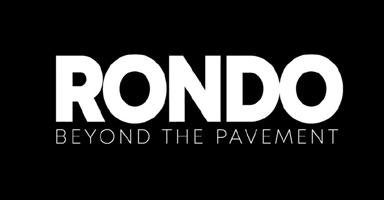
By Josh Cobb, Twin Cities Association of Black Journalists /Insight News Intern
In the early to mid-20th century, Minnesota’s state capital was the epicenter of a thriving, local Black community; the Rondo neighborhood. It was an essential gathering place, as it was home to businesses, political organizations such as the Urban League and the National Association for the Advancement of Colored People (NAACP) and there was a strong sense of family among its community members.
The community was destroyed and became a shell of itself by the late 1960s due to the construction of Interstate 94. In a process that lasted more than a de-cade, homes, families and businesses were removed from the heart of the Rondo neighborhood.
Through the years, many have scrutinized the decision to place the highway in the center of a predominantly Black neighborhood instead of a route that would have been near abandoned railroad tracks. Bianca Rhodes, the production manager and venue coordinator at St. Paul Neighborhood Network (SPNN) decided to document the history of the community through the stories of people who lived through this time with the film, “Rondo: Beyond the Pavement.”
Rhodes’ love for film began when she, along with her best friend, got to work for the relaunch of a Twin Cities PBS show called “Don’t Believe the Hype.” She got to work as on-air talent and a behind the scenes mentor, while also keeping learning from her mentors Daniel Pierce Bergin and Robin Hickman.
“They were the executive producers of ‘Don’t Believe the Hype,’” said Rhodes. “They were the dynamic duo. They are my mom and dad of media.”
Rhodes’ family ties to the Rondo community led to her being approached by the St. Paul Almanac to participate in an intergenerational conversation about Rondo. The filmmaker said the conversation fueled the decision to make the documentary.
“They’ve (Rondo residents) always looked out for me. It was a way for me to give back by doing that film,” Rhodes said. “I would be honoring the people who always cared about me in their own little ways.”
While paying homage to the elders in the Rondo community, Rhodes also used the film as an opportunity to teach the youth about the history of Rondo. She partnered with the High School for Recording Arts to get a group of students who wanted to learn about filmmaking and their local communities. Rhodes taught the youth – many who conducted interviews and operated the cameras – about the history of the community, and after learning about what the construction did to the once thriving community, she said they were eager to get to work.
“They almost turned into investigative reporters,” Rhodes said.
Rhodes said one of the hardest parts of making the documentary was getting people to talk about their personal experiences with the destruction of Rondo.
“That’s the part that a lot of people don’t understand,” Rhodes said. “There’s a lot of pain behind this. We’re asking people to talk about stuff that they haven’t talked about in many years.”
To combat that obstacle, her team would share a meal at the subject’s home before conducting the interviews. She said this delicate method made the process more genuine and created the space for elders to speak more candidly about their experiences.
After making the film, Rhodes said her love for Rondo has intensified and there is a special place in her heart for the Rondo community.
“I will always be in Rondo and spend money in Rondo,” Rhodes said.
Since the rollout of the film, Rhodes and her team have received tremendous positive feedback.
“What I’m most proud of is being able to do the work that I said I was going to do,” Rhodes said. “I wanted to take both of my passions in social justice and film and tie it together. It inspired me on how I need to do films for the rest of my life.”
In addition to the documentary, there is also a “Rondo: Beyond the Pavement” podcast. The podcast includes extended interviews and addition stories told from Rondo residents.


Be the first to comment